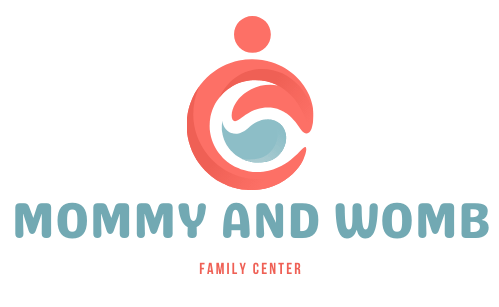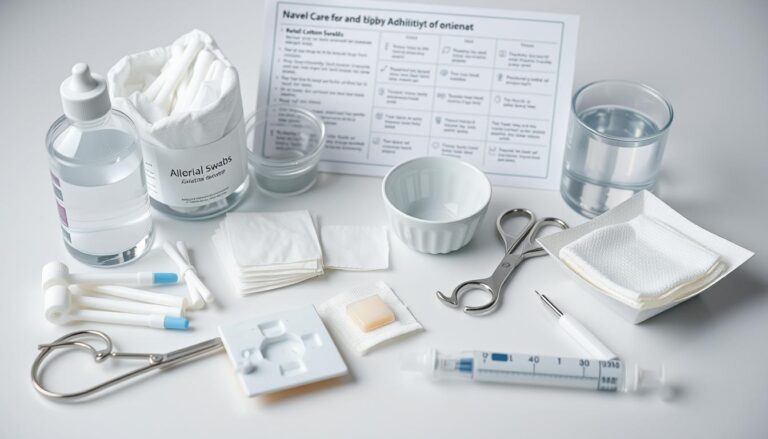Essential Newborn Nutrition: A Parent’s Guide

As a new parent, your newborn’s health is your main concern. The world of infant nutrition can seem daunting. But, with the right info, you can give your baby the nutrients they need to grow strong.
This guide aims to help you make smart choices about your baby’s diet. It covers everything from the benefits of breastfeeding to when to start solid foods.
Table of Contents
Understanding Developmental Milestones
As your newborn grows, they will hit important milestones in many areas. These include cognitive, motor, social, and emotional development. Knowing these stages helps you support your baby’s growth and provide the right stimulation in their first year.
Cognitive and Motor Skill Development
Cognitive development covers your baby’s learning, memory, and language skills. In the early months, they show reflexes like the swallow reflex and tongue reflex, which help with feeding. Around 2 weeks, they might start to dislike bitter flavors as a safety measure.
By 2 months, they may reject sour flavors and start to use reflexes like rooting and jaw movements.
Motor skill development includes reaching, grasping, and moving. Babies start exploring objects with their mouths around 6 months. They use the palmar grasp to reach and bring things to their mouths.
By 6-7 months, they improve trunk control, transfer toys, hold a bottle, and enjoy watching others eat.
Social and Emotional Development
Social and emotional development is key for forming bonds and trust. Infants around 8-9 months might develop the pincer grasp and start chewing softer foods. They may also want to self-feed, showing their growing independence.
Introducing different textures around 8-9 months helps babies learn to eat finger foods and improve their chewing. By 9 months, they usually move from smooth purees to chunkier foods, showing their growing oral motor skills.
As your baby grows, they will hit new developmental milestones. Each milestone shows their amazing growth and development. Understanding these stages helps you support your child’s cognitive, motor, social, and emotional well-being in their first year and beyond.
Positive Parenting Tips for the First Year
Parenting a newborn is both rewarding and challenging. As you start this journey with your little one, here are some positive parenting tips. They will help support your child’s growth and development:
- Talk and read to your baby. This can help their positive parentingand improve their language skills.
- Sing and play music. Introducing your baby to different music can boost their social and emotional well-being.
- Provide loving attention. Responding to your baby’s needs with warmth and sensitivity builds a strong bond.
- Take care of yourself. Remember to look after your physical and mental health. Taking care of yourself makes you a better parent.
By using these positive parenting strategies, you can support your newborn’s development. You’ll also create a loving environment for your family to grow.
Remember, every child grows at their own pace. What works for one family might not work for another. Be patient, flexible, and don’t hesitate to ask for help from healthcare professionals or parenting resources. The journey of positive parenting, infant care, and newborn development is rewarding, even with its challenges.
“The most important thing that parents can teach their children is how to get along without them.”- Frank A. Clark
Child Safety First
Keeping your newborn safe is a top priority. This includes safe sleep practices and preventing injuries. We’ll guide you on how to keep your little one safe and protected.
Safe Sleep Practices
Always place your newborn on their back to sleep. This lowers the risk of sudden infant death syndrome (SIDS) and helps with sleep habits. Also, keep your baby away from secondhand smoke to protect their lungs.
Preventing Injuries and Accidents
Baby-proofing your home is key to safety. This means installing safety gates, covering sharp edges, and securing furniture. It’s also important to keep small objects out of reach and learn infant CPR.
By following these child safety tips and injury prevention strategies, you can create a safe space for your newborn. Remember, baby-proofing your home is an ongoing task. Stay alert as your baby grows and becomes more active.
“The most important thing is to make sure your baby is safe and secure at all times.”
Newborn Nutrition: The Importance of Breastfeeding
Breastfeeding is the best way to feed your newborn. It gives them the nutrients they need and helps you bond. This section talks about breastfeeding’s benefits and how to start, including getting help from lactation consultants.
Benefits of Breastfeeding
Breast milk is full of nutrients, antibodies, and enzymes that help your baby grow. It can lower the risk of diseases later in life. It also changes as your baby grows, always providing the right nutrition.
Breastfeeding introduces babies to different tastes, shaping their food preferences. It strengthens the bond between you and your baby. It also releases oxytocin, which helps you bond and feel better.
Preparing for Breastfeeding
Breastfeeding helps your uterus shrink back to its pre-pregnancy size. It also saves money compared to formula. To get ready, try relaxation techniques like massage and meditation. Drinking plenty of water and choosing safe birth control can also help.
The American Academy of Pediatrics suggests breastfeeding for 6 months first. Then, add solid foods. By 2 months, babies usually eat every 3-4 hours. By 6 months, it’s every 4-5 hours.
| Breastfeeding Statistics | Percentage |
|---|---|
| Exclusively breastfed infants until 6 months | 25% |
| Ever breastfed infants (Black population) | 75% |
| Ever breastfed infants (National average) | 84% |
| Hospitals with recommended maternity care practices that support breastfeeding | 28.9% |
With the right support and preparation, breastfeeding can be a rewarding and beneficial experience for both you and your newborn.
“Breast milk is a powerhouse of essential nutrients, antibodies, and enzymes crucial for newborn growth and development.”
Formula Feeding: A Viable Alternative
While breastfeeding is often seen as the best choice for babies, formula feeding is also a good option for many families. It provides the nutrients babies need and lets others help with feeding. This makes it easier for family members to bond with the baby.
Infant formula is made to meet strict standards set by the FDA. It has vitamins, minerals, and fats that babies need to grow well. Whether you pick a cow’s milk-based, soy-based, or specialized formula, your baby will get the nutrients they need.
For babies under 12 months, cow’s milk-based formula is best. It’s close to the nutrients in breastmilk. Homemade formulas or substitutes like raw milk or bone broth are not good alternatives. They might not have the right nutrients or could be harmful.
If your baby has allergies or intolerances, there are specialized formulas that can help. Talk to your pediatrician to find the best formula for your child’s needs.
Once you pick a formula, try not to change it often. Babies take time to adjust to new formulas. Also, wean your baby off the bottle and start using a cup by 12 months.
Formula feeding can be easy and flexible for families. It lets others help with feeding. With the right advice from your healthcare provider, formula feeding can be a good choice for your baby’s growth and development.
| Breastfeeding vs. Formula Feeding | Breastfeeding | Formula Feeding |
|---|---|---|
| Nutrient Composition | Breastmilk adapts to meet the changing nutritional needs of the growing baby. | Infant formula is carefully formulated to meet strict nutritional standards set by regulatory bodies. |
| Immune System Benefits | Breastfeeding reduces the risk of respiratory infections, ear infections, and gastrointestinal issues in infants. | Formula feeding does not provide the same immune system benefits as breastfeeding. |
| Feeding Flexibility | Breastfeeding can be more time-consuming and may limit the involvement of other family members in the feeding process. | Formula feeding allows for more flexibility and convenience, enabling family members to participate in the feeding process. |
“Breastmilk is emphasized as a natural and sustainable way to feed an infant in the early months of life.”
Introducing Solid Foods
When your baby is about 6 months old, they’re ready to try solid foods. This is a big step from just drinking milk or formula. It’s a time to start a balanced diet with solid foods.
The American Academy of Pediatrics says to start with breast milk alone for 6 months. Then, add solid foods around 6 months. Keep breastfeeding for two years or more. This helps your baby grow and keeps your milk supply strong.
Look for signs your baby is ready for solid foods. They should sit up well, have good head control, and try to grab food. Start with iron-rich foods like infant cereal, turkey, chicken, and beef. They need only a little bit of solid food to go with their milk.
| Recommended First Solid Foods | Nutritional Benefits |
|---|---|
| Iron-fortified infant cereal | High in iron, essential for preventing anemia |
| Pureed meats (turkey, chicken, beef) | Rich in protein and other essential nutrients |
| Mashed or pureed fruits and vegetables | Provide a variety of vitamins, minerals, and fiber |
Starting solids late might raise the risk of food allergies. Avoid foods like cow’s milk, dairy, and nuts for babies with allergies. Always check with your pediatrician before introducing these foods.
Adding solid foods to your baby’s diet is a slow process. Listen to your baby and go at their pace. Some might not like new foods at first, but don’t worry. Keep trying, and it might take 10-15 times for them to like it.
Make mealtime a fun and positive experience. This will help your baby enjoy trying new foods and flavors.
Newborn nutrition
As a new parent, it’s key to give your newborn the right food for their fast growth. Newborns need special nutrients for their brain, body, and emotional health.
Nutrient Requirements
Newborns need a mix of proteins, fats, carbs, vitamins, and minerals. Breastmilk or formula should be their only food for the first 6 months. These nutrients help your baby grow, keep them healthy, and support brain development.
Babies who are breastfed nurse every 2 hours, starting with 1 oz and growing to 4.5 oz by 1 year. Bottle-fed babies eat every 2-3 hours, taking 3-4 oz by the first month.
Promoting Healthy Weight Gain
It’s important to watch your newborn’s weight to make sure they’re eating enough. Doctors will check your baby’s weight on a growth chart. This helps see if they’re growing at a good pace.
Keep an eye on newborns, especially early ones, to make sure they’re gaining weight right. Babies who are only breastfed for 6 months are less likely to be overweight. This shows how good breastfeeding is for weight control.
Remember, every baby is different, and their food needs can change. If you’re worried about your newborn’s growth or eating, talk to your pediatrician. They can give you advice and support tailored just for you.
Creating a Nurturing Environment
It’s not just about meeting your newborn’s physical needs. Creating a nurturing environment is key for their emotional and social growth. This part focuses on bonding and attachment. These are vital for your baby’s well-being and a strong infant-parent relationship.
Bonding and Attachment
Attachment is a two-way process. It’s where you and your baby exchange emotional cues. This builds a sense of safety and understanding.
It helps your baby trust others and grow emotionally and socially. This foundation is crucial for their development.
To create a nurturing environment, understand your baby’s cues. This includes sounds, cries, and body language. By responding with patience and care, you strengthen your bond and support your child’s growth.
Creating a secure attachment isn’t just about love. It’s about managing stress and responding to your baby’s needs. Responsive care builds trust and independence, which are key for your child’s well-being.
To learn more about child care, please click on the link
https://www.mommyandwomb.com/baby



